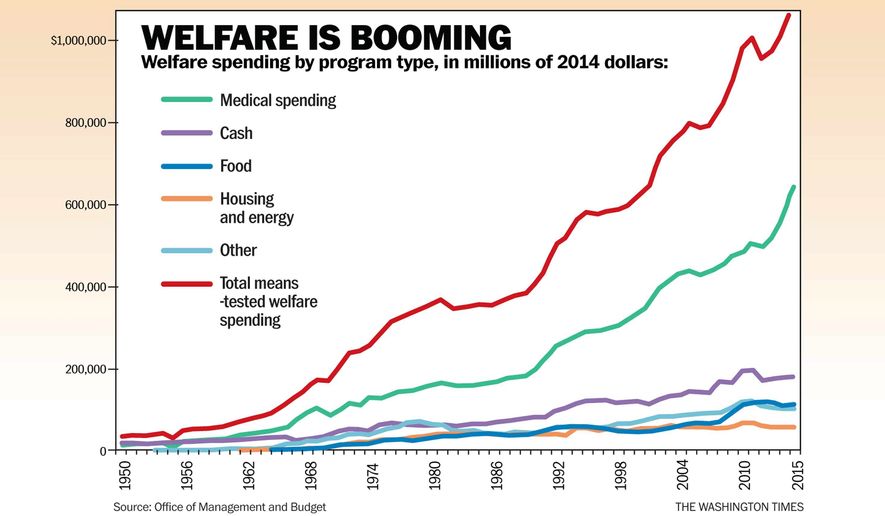OPINION:
Two recent news stories highlight how pernicious the welfare state has become in America today.
The first was an announcement by the feds that food stamps can be used to have groceries delivered right to a recipient’s door. Service with a smile. The Obama administration says it is too much of a hardship for those on welfare to actually travel to the grocery store. What’s next? Cooking the meal for them? If only the DMV would do home deliveries for drivers licenses.
The second story was about the hullabaloo over a proposal by Maine governor Paul LePage to prohibit food stamp recipients from using their food aid to purchase junk foods like sugary soft drinks and candy bars. He says that the state has an obesity problem and he will “implement reform unilaterally or cease Maine’s administration of the food stamp program altogether.” The Obama administration rejected his request and the left activists act as if the idea that a welfare recipient can’t buy a pint of Ben and Jerry’s ice cream at taxpayer expense is a violation of civil liberties.
The welfare/entitlement state of mind has spiraled out of control in America. No one is lifting a finger of opposition. The cost of welfare is now well over $1 trillion a year. Food stamps are so ubiquitous that they have replaced dollars as the new standard currency in many inner cities in America. Even in affluent areas with upscale grocery stores, food stamp recipients fill their carts with everything from cakes to lobster.
Liberals love welfare. It was only a few years ago that Democratic House leader Nancy Pelosi opined that putting more people on food stamps and unemployment insurance is one of the “best ways to stimulate the economy.” Which is more astonishing? That she believes this lunacy or that she would be dumb enough to say it out loud.
We are in the seventh year of a so-called recovery, yet 45 million Americans depend on taxpayers to put food on their table. This is roughly 5 million more than when President Obama took office. Medicaid rolls have exploded by more than 10 million, too, and Mr. Obama openly boasts about how many people he’s moved into the program. Unemployment insurance beneficiaries have fallen, thankfully, but the number of Americans collecting disability has continued to climb. Wow this is some recovery.
By the way, disability rolls are growing even as worker safety has hit an all-time high. Shouldn’t safety and automation mean fewer disabled workers? The reality, as everyone in the welfare industry knows, is that food stamps and disability are the new welfare. Neither one of them requires work in exchange for benefits.
No one wants to admit that the ease of entry into the welfare state and the generosity of the benefits is one big reason why labor force participation has collapsed. Why work?
Welfare expert Peter Ferrara notes that a big instigator for the welfare state expansion has been the decimation of welfare reform laws passed in 1996. “It’s infuriating that a law that worked incredibly well in lowering costs and getting the unemployed into the workforce, has been largely gutted,” he concludes.
As a result, the Census Bureau tells us that most families that are in poverty have no one working. Poverty is still widespread in America not because wages are too low, but that fewer poor people have a job. If there are no wages earned at all, it is impossible to get out of the poverty trap.
Welfare incentivizes non-work in many other ways. Former George W. Bush economist Larry Lindsey reports that welfare recipients generally lose at least 50 cents of every dollar benefit they gain in wage and salary from working. Sometimes the benefits fall by 70 cents per dollar earned. So a $12 an hour job returns as little as $4 an hour of extra income. Why work?
Democrats in Congress have vociferously opposed putting even baby teeth back into work for welfare requirements. Even modest workfare requirements are denounced as anti-poor. So even a proposed federal law mandating work for food stamp recipients who are non-disabled adults without kids got shot down.
We know that changing welfare laws can have a very positive impact on getting recipients back into the workforce and off welfare. In North Carolina when unemployment benefits were reduced and the number of weeks of benefits were limited, entry into the workforce shot up. Entry into the workforce grew by more than nearly any other state in the country. Go figure.
In Maine, we saw a similarly remarkable result from work requirements. According to a Heritage Foundation report: “SNAP recipients in Maine totaled 201,151 in April of 2015 — a decline of more than 28,000 in just one year. The number of ABAWDs — Able-Bodied Adults Without Dependents — in Maine declined about 80 percent” to 2,530 in 2015 from 12,000 prior to the work requirement.
This result was in line with the federal work for welfare requirements enacted in 1996. Caseloads fell by more than half and costs of aid tumbled. So why aren’t Republicans pushing workfare for all federal welfare recipients? Some are afraid that they will be viewed as hard-hearted or even cruel. But getting people off of welfare into a productive job is not just a way to reduce costs, it’s a proven way to rebuild broken lives and move people into the mainstream. There is dignity in work. There is despair in welfare. After three generations of the failed entitlement state, hasn’t welfare done enough harm to the very people it was supposed to help.
• Stephen Moore is an economic consultant with Freedom Works.




Please read our comment policy before commenting.